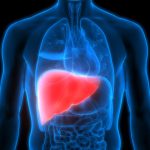 Patient safety is our guiding principle at UPMC. The loss of any patient is therefore a cause of grief and sadness.
Patient safety is our guiding principle at UPMC. The loss of any patient is therefore a cause of grief and sadness.
Thursday night, September 17, 2015, a UPMC liver transplant patient died at UPMC Montefiore. This patient had a rash that appeared to be fungal. Preliminary testing indicates that this infection is consistent with that in the three previous patients. UPDATE: Testing confirmed it to be lichtheimia.
The mold that causes infections like this is common in the environment and is not a risk to anyone except those who are most severely immunocompromised. Among transplant patients such infections are rare, but do occur from time-to-time without any discernable source.
In this latest case, the patient was not in the temporarily closed cardiothoracic intensive care unit (CTICU) at UPMC Presbyterian or near the lung transplant patient who currently has the mold infection. That patient is still alive, with a poor prognosis.
We are doubling down on our efforts to understand the situation and to protect our patients.
As a precaution, we are putting all transplant patients in UPMC Presbyterian-Montefiore on a new antifungal medication even though there is no sign of infection in any of these patients. This prophylactic treatment is intended to protect them until we find and fix the source of this problem.
Our infection prevention experts are reporting to and consulting with the Allegheny County Health Department, the Pennsylvania Department of Health, The Joint Commission and the U.S. Centers for Disease Control and Prevention. We value their expertise.
Additional measures include:
- Consulting with international mold and hospital environment specialist Andrew J. Streifel with whom we’ve proactively worked in the recent past. We continue to engage local mold remediation experts.
- Consultation with the Center for Organ Donation and Recovery.
- Investigation of all commonalities among the four patients who had these rare mold-related infections.
- Ongoing, active air quality monitoring inside and outside to detect mold and dust. We have not received any concerning results.
- Precautionary replacement of microfilters in all of our air handling units.
- Deployment of our UV disinfecting robots in all of our ICUs.
This is a situation that we take extremely seriously. We are exploring all avenues suggested by our UPMC experts and outside experts.
We want to reiterate that the mold that causes these infections is common in the environment. It does not cause problems for anyone but the most seriously immunocompromised patients and we do not believe it to be a threat to our staff, visitors or the vast majority of our patients. Symptoms present themselves quickly. When we shut down our CTICU, we moved 18 patients, including the patient whose infection made us aware of this issue.
We are doing everything possible to get to the source of the problem and fix it quickly.
It is best if patients with concerns contact their physicians, who will be familiar with their care. If their physician needs further information, they can contact infection prevention at UPMC. Our staff can call Employee Health if they have questions or concerns. We also set up a hotline that anyone can call if they have questions or concerns: 412-864-0250 or 844-783-2412.
Media coverage includes: UPMC steps on mold outbreak, Mold claims third victim and Another UPMC patient death could be connected to mold.







